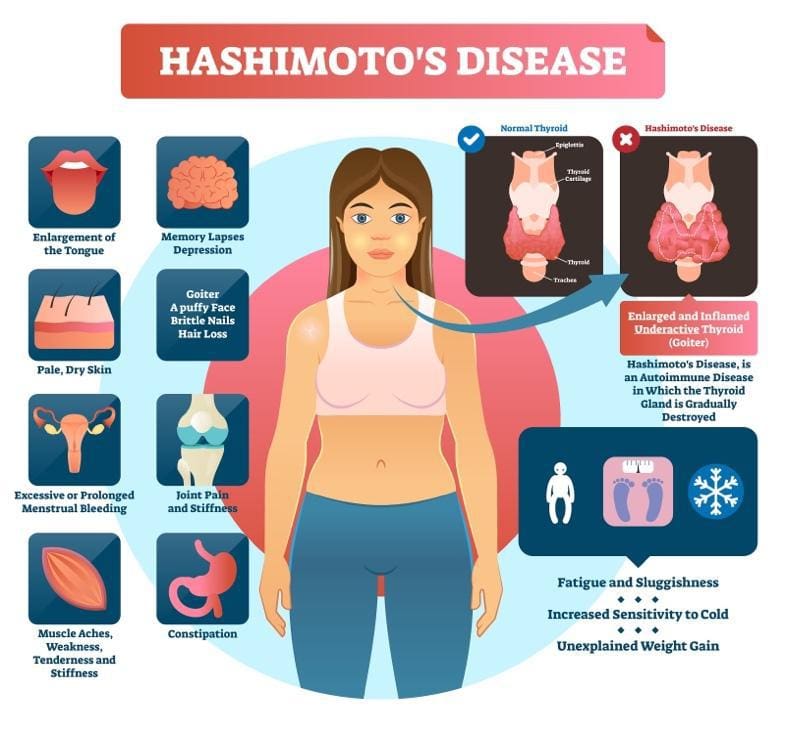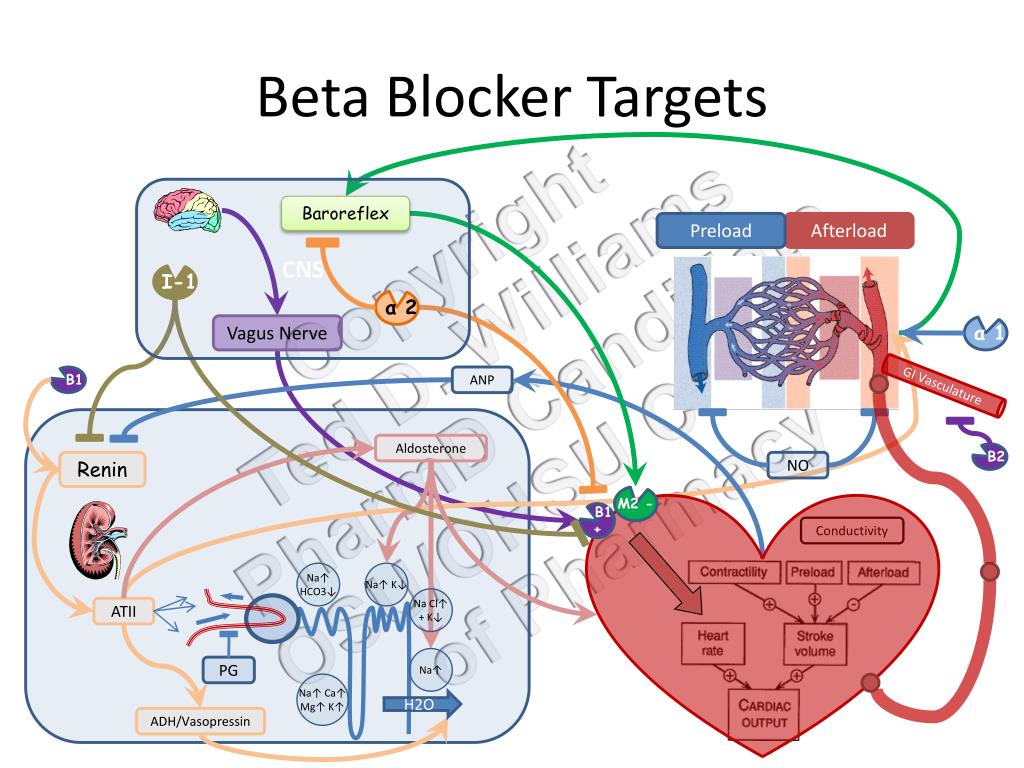Hashimoto's Hidden Link - Exploring the Gut-Thyroid Connection

The Silent Struggle with Hashimoto's
Hashimoto's disease, a common autoimmune disorder, silently affects millions of people worldwide, targeting the thyroid gland. Despite its prevalence, Hashimoto's often goes undiagnosed or misdiagnosed, leaving numerous individuals struggling with its debilitating symptoms.
Understanding Hashimoto's Disease
Hashimoto's disease is a chronic autoimmune condition in which the immune system mistakenly attacks and damages the thyroid gland, leading to hypothyroidism. This results in a decrease in essential thyroid hormones, impacting various bodily functions.
The Symptoms of Hashimoto's Disease
- Fatigue and lethargy
- Weight gain and difficulty losing weight
- Brain fog, memory loss, and difficulty concentrating
- Cold intolerance, hair loss, and dry skin
The Gut-Thyroid Connection: A Key to Unlocking Hashimoto's Mystery
Recent research has revealed a significant link between gut health and thyroid function. An imbalance of gut bacteria, also known as dysbiosis, can contribute to the development of Hashimoto's disease. This connection highlights the importance of addressing gut health in the management of Hashimoto's.
Uncovering the Gut-Thyroid Axis
Recent studies have shed light on the intricate relationship between gut health and thyroid function, revealing a complex interplay that has significant implications for our understanding of Hashimoto's disease.
The Gut Microbiome's Influence on Thyroid Hormone Production
Research has shown that the gut microbiome plays a crucial role in the production and absorption of thyroid hormones. The gut's trillions of microorganisms work in tandem with the thyroid gland, influencing the conversion of thyroxine (T4) to triiodothyronine (T3), the active form of thyroid hormone.
The Impact of Dysbiosis on Hashimoto's Development
An imbalance of gut bacteria, or dysbiosis, has been linked to the development of Hashimoto's disease. When the gut microbiome becomes disrupted, it can lead to inflammation, impaired nutrient absorption, and altered immune responses, creating an environment conducive to autoimmune thyroiditis.
This gut-thyroid axis offers new avenues for exploring the causes and treatments of Hashimoto's, highlighting the importance of maintaining a healthy gut microbiome in support of thyroid function and overall well-being.
The Role of Leaky Gut in Hashimoto's
Hashimoto's thyroiditis, an autoimmune disease, has a lesser-known yet significant connection with the gut. Leaky gut syndrome plays a crucial role in the development and progression of Hashimoto's. In this section, we will delve into the relationship between leaky gut and Hashimoto's, exploring how gut health impacts thyroid function.
What is Leaky Gut Syndrome?
Leaky gut syndrome occurs when the lining of the small intestine becomes permeable, allowing toxins and undigested food particles to enter the bloodstream. This breach in the gut lining triggers an immune response, leading to inflammation and potentially damaging the thyroid gland.
The Gut-Thyroid Connection
Research suggests that leaky gut syndrome is more prevalent in individuals with Hashimoto's. The gut and thyroid have a bidirectional relationship, with the gut influencing thyroid function and vice versa. A compromised gut lining can lead to:
- Malabsorption of nutrients essential for thyroid function
- Increased inflammation, exacerbating thyroid damage
- Activation of autoimmune responses, targeting the thyroid gland
Healing the Gut Lining: A Crucial Step in Managing Hashimoto's
Restoring the integrity of the gut lining is vital for managing Hashimoto's symptoms. By addressing leaky gut syndrome, individuals can:
- Reduce inflammation and oxidative stress
- Improve nutrient absorption, supporting thyroid function
- Regulate the immune system, decreasing autoimmune responses
By acknowledging the gut-thyroid connection and addressing leaky gut syndrome, individuals with Hashimoto's can take a holistic approach to managing their condition, promoting overall well-being and improving their quality of life.
Nutritional Interventions for Hashimoto's
When it comes to managing Hashimoto's thyroiditis, nutritional interventions can play a crucial role in reducing inflammation, promoting thyroid healing, and supporting immune balance. Here are some key nutrients and dietary changes to consider:
1. Gluten-Free Diet
A gluten-free diet has been shown to reduce inflammation and promote thyroid healing in individuals with Hashimoto's. Gluten, a protein found in wheat, barley, and rye, can trigger an immune response and exacerbate thyroid inflammation. By eliminating gluten from the diet, individuals may experience a reduction in symptoms and improved thyroid function.
2. Omega-3 Fatty Acids, Vitamin D, and Selenium
These nutrients are essential for supporting thyroid function and immune balance. Omega-3 fatty acids, found in fatty fish and flaxseeds, reduce inflammation and promote immune system regulation. Vitamin D, obtained through sunlight and supplements, supports immune system function and thyroid health. Selenium, a mineral found in Brazil nuts and fish, acts as an antioxidant and supports thyroid function.
3. Probiotics and Prebiotics
Probiotics and prebiotics can help restore the gut microbiome, which is critical for immune system function and thyroid health. Probiotics, found in fermented foods like yogurt and sauerkraut, introduce beneficial bacteria into the gut. Prebiotics, found in foods like asparagus and bananas, feed beneficial bacteria, promoting their growth and activity.
Breaking the Silence: Raising Awareness for Hashimoto's
Hashimoto's thyroiditis, an autoimmune disease affecting the thyroid gland, often remains shrouded in silence. It's essential to break this silence, raising awareness for early diagnosis, effective management, and promoting support for those affected.
The Importance of Awareness
Awareness is crucial for early diagnosis, as symptoms can be subtle and easily mistaken for other conditions. By understanding Hashimoto's, individuals can seek timely medical attention, preventing long-term complications.
Empowering Through Education
Patient advocacy and education play a vital role in reducing stigma and promoting support. By sharing experiences and knowledge, individuals can connect with others, fostering a sense of community and understanding.
Advancing Research and Treatment
Further research is necessary to unravel the mysteries of the gut-thyroid connection and develop targeted therapies. By supporting scientific inquiry, we can improve treatment options and enhance the quality of life for those affected by Hashimoto's.















Comments ()